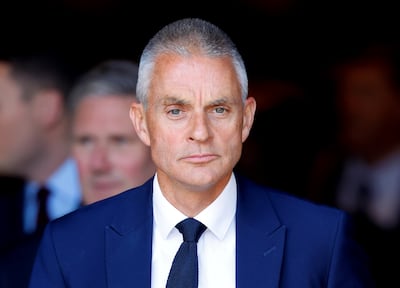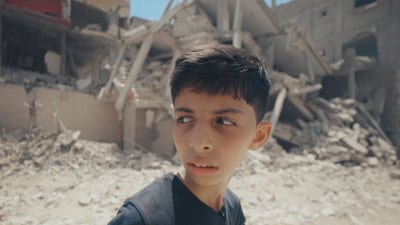The BBC breached its editorial guidelines on accuracy by failing to disclose that the narrator of a Gaza documentary was the son of a Hamas official, the corporation said on Monday.
An independent review commissioned by the corporation found that Gaza: How to Survive a Warzone failed to disclose to audiences the “critical information” of the role the 13-year-old's father had with the Palestinian enclave's Hamas-run government, the BBC said.
The child narrator, Abdullah, is the son of Ayman Alyazouri, who has worked as the Hamas-appointed Deputy Minister of Agriculture.

The corporation said the report found nobody at the BBC knew of the father's position when the documentary first aired on February 17. But three people at Hoyo Films, the independent production company which produced the film, were aware.
It added the report does not find the production company misled the corporation but does find the firm bears most of the responsibility for the failure. Counter-terrorism police were reported to be assessing the complaints about the BBC documentary.
The review was conducted by Peter Johnston, the BBC’s director of editorial complaints and reviews, and it found no other breaches of the guidelines.
BBC director general Tim Davie apologised for a “significant failing” in relation to the documentary and pledged the corporation would take action to prevent it happening again.
“Peter Johnston's report identifies a significant failing in relation to accuracy in this documentary. I thank him for his thorough work and I am sorry for this failing,” said Mr Davie.

“We will now take action on two fronts – fair, clear and appropriate actions to ensure proper accountability and the immediate implementation of steps to prevent such errors being repeated.”
The BBC board said the comprehensive examination of the programme examined many months of messages, from concept through to broadcast.
“Nothing is more important than trust and transparency in our journalism,” it said. “We welcome the actions the executive are taking to avoid this failing being repeated in the future.”
Hoyo Films said it took the review’s findings “extremely seriously and apologise for the mistake that resulted in a breach of the editorial guidelines”.
“We are pleased the report found there was no evidence of inappropriate influence on the content of the documentary from any third party,” said the company.
“Our team in Gaza risked their lives to document the devastating impact of war on children.
“Gaza: How To Survive A Warzone remains a vital account and our contributors, who have no say in the conflict, deserve to have their voices heard.”
Meanwhile, Ofcom, the UK's broadcasting and communications regulator, said it would be launching its own investigation into Gaza: How To Survive A Warzone.
The watchdog said having examined the BBC report it will look at whether the documentary breached its broadcasting code, which states that factual programmes "must not materially mislead the audience".
"Having examined the BBC's findings, we are launching an investigation under our rule which states that factual programmes must not materially mislead the audience," said a spokesman.
The decision last week to remove the programme from BBC streaming platforms prompted outcry from some supporters of the film, who questioned the critics' motives. More than 700 television and film professionals condemned the BBC’s withdrawal of the film in an open letter to the broadcaster.
Former footballer and BBC presenter Gary Lineker, actors Khalid Abdalla, Miriam Margolyes and Juliet Stevenson, as well as 12 BBC staff, were among the signatories.
The letter claims criticism of the documentary is based on “racist assumptions and weaponisation of identity”, and that Mr Alyazouri is a civil servant concerned with food production.
It comes as Ben de Pear and Ramita Navai, the producers of another documentary, Gaza: Doctors Under Attack, have accused the BBC of pulling the programme because of the controversy over Gaza: How To Survive A Warzone.
Writing in The Observer, they said that delays to airing the programme had “little to do with our film and more to do with another one: How to Survive a Warzone”.
Eventually the BBC transferred ownership of the film to its producers Basement Films and it was broadcast by Channel 4.


